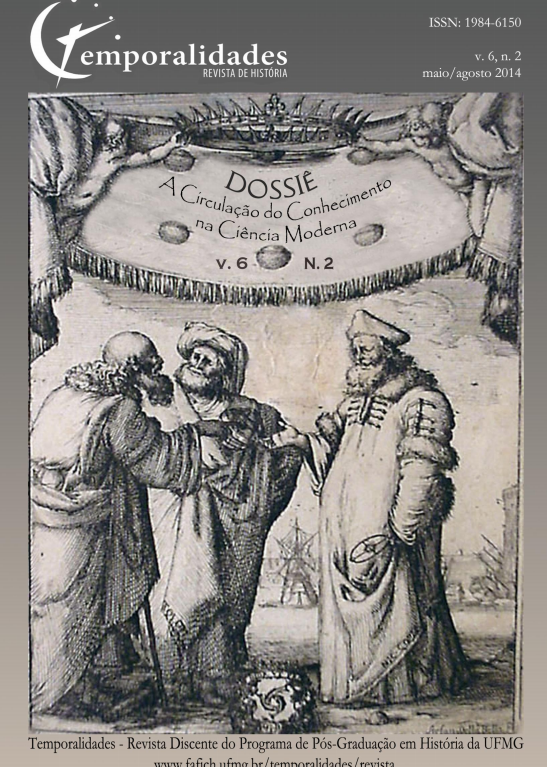O desenvolvimento da medicina moderna na cultura lusa do século XVIII
Palavras-chave:
Medicina experimental, Circulação de conhecimento, PortugalResumo
O objetivo deste artigo é seguir os caminhos que levaram à introdução e ao desenvolvimento da medicina moderna na sociedade portuguesa do século XVIII, buscando esclarecer as especificidades desse processo. Este trabalho não possui o caráter de pesquisa original, mas sim de uma narrativa bibliográfica construída, do ponto de vista teórico, a partir das
concepções de Thomas Kuhn e da epistemologia francesa, mais especificamente, Foucault. No encontro entre os séculos XVIII e XIX, três fenômenos distintos pavimentaram os novos caminhos seguidos pela medicina: o nascimento da clínica e do método anatomoclínico, o desenvolvimento do cepticismo terapêutico e o advento da fisiologia como disciplina autônoma. Em Portugal, a recepção das novas ideias científicas deveu-se, em parte, à influência dos estrangeiros e estrangeirados. Contudo, havia relutância por parte de membros da comunidade científica lusitana em aderir à modernização dos saberes médicos, o que revela importantes indícios para o entendimento da circulação e apropriação do conhecimento naquela sociedade.
ABSTRACT: The purpose of this article is to follow the paths that led to the introduction and development of modern medicine in Portuguese society of the eighteenth century, seeking to clarify the specificity of this process. This work does not have the character of original research, but rather a constructed narrative literature, the theoretical point of view, from the conceptions of Thomas Kuhn and French epistemology, more specifically, and Foucault. The meeting between the eighteenth and nineteenth centuries, three distinct phenomena paved new paths followed by medicine: the birth of clinical and anatomical-clinical method; the development of therapeutic skepticism and the advent of physiology as an autonomous discipline. In Portugal, the acceptance of new scientific ideas, was due in part to the influence of foreigners and estrangeirados. However, there was reluctance on the part of members of the Lusitanian scientific community to join the modernization of medical knowledge, which reveals important clues for understanding the circulation and appropriation of knowledge in that society.
KEYWORDS: Experimental medicine, Circulation of knowledge, Portugal.
Downloads
Downloads
Publicado
Edição
Seção
Licença
O(A) autor(a), para fins de submissão à revista Temporalidades, deve declarar que o trabalho aqui submetido é de autoria do mesmo e nunca foi publicado em qualquer meio, seja ele impresso ou digital.
O(A) autor(a) também declara estar ciente das seguintes questões:
Os direitos autorais para artigos publicados na Temporalidades são do autor, com direitos de primeira publicação para o periódico;
Em virtude de aparecerem nesta revista de acesso público, os artigos são de uso gratuito;
A revista permitirá o uso dos trabalhos publicados para fins não-comerciais, incluindo direito de enviar o trabalho para bases de dados de acesso público.
A Temporalidades adota a licença internacional Creative Commons 4.0 (CC BY).











